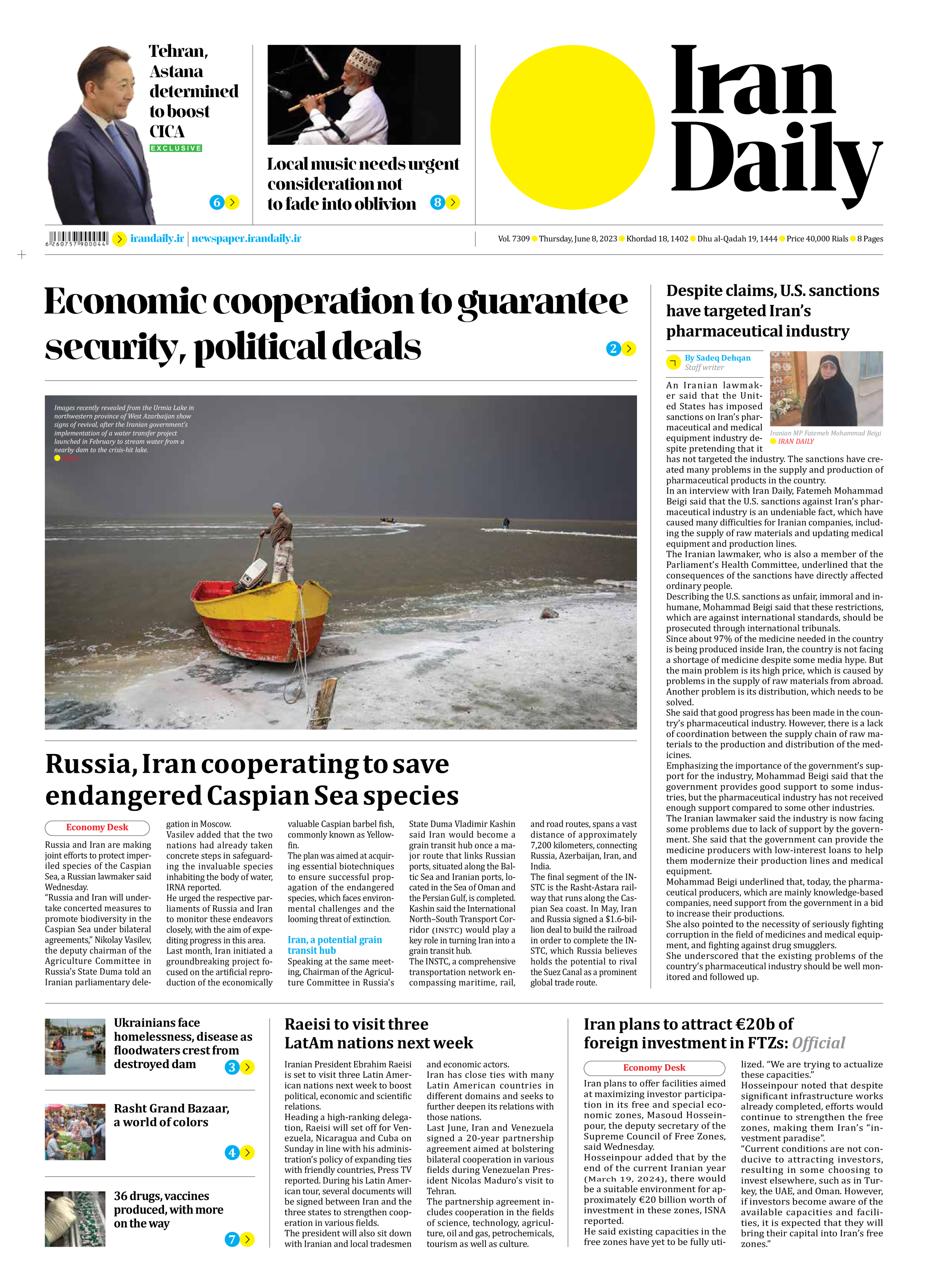
Despite claims, U.S. sanctions have targeted Iran’s pharmaceutical industry
By Sadeq Dehqan
Staff writer
An Iranian lawmaker said that the United States has imposed sanctions on Iran’s pharmaceutical and medical equipment industry despite pretending that it has not targeted the industry. The sanctions have created many problems in the supply and production of pharmaceutical products in the country.
In an interview with Iran Daily, Fatemeh Mohammad Beigi said that the U.S. sanctions against Iran’s pharmaceutical industry is an undeniable fact, which have caused many difficulties for Iranian companies, including the supply of raw materials and updating medical equipment and production lines.
The Iranian lawmaker, who is also a member of the Parliament’s Health Committee, underlined that the consequences of the sanctions have directly affected ordinary people.
Describing the U.S. sanctions as unfair, immoral and inhumane, Mohammad Beigi said that these restrictions, which are against international standards, should be prosecuted through international tribunals.
Since about 97% of the medicine needed in the country is being produced inside Iran, the country is not facing a shortage of medicine despite some media hype. But the main problem is its high price, which is caused by problems in the supply of raw materials from abroad. Another problem is its distribution, which needs to be solved.
She said that good progress has been made in the country’s pharmaceutical industry. However, there is a lack of coordination between the supply chain of raw materials to the production and distribution of the medicines.
Emphasizing the importance of the government’s support for the industry, Mohammad Beigi said that the government provides good support to some industries, but the pharmaceutical industry has not received enough support compared to some other industries.
The Iranian lawmaker said the industry is now facing some problems due to lack of support by the government. She said that the government can provide the medicine producers with low-interest loans to help them modernize their production lines and medical equipment.
Mohammad Beigi underlined that, today, the pharmaceutical producers, which are mainly knowledge-based companies, need support from the government in a bid to increase their productions.
She also pointed to the necessity of seriously fighting corruption in the field of medicines and medical equipment, and fighting against drug smugglers.
She underscored that the existing problems of the country’s pharmaceutical industry should be well monitored and followed up.







